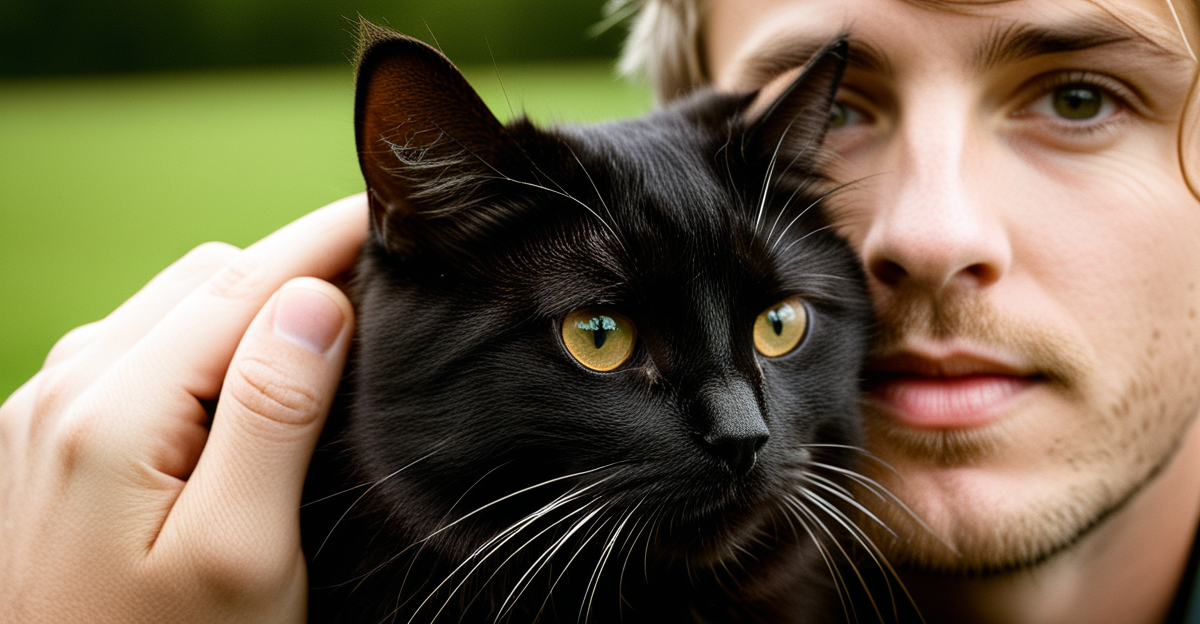Lifestyle Adjustments When Owning Exotic Pets in the UK
Owning an exotic pet in the UK significantly influences one’s lifestyle impact and daily routines UK. The day-to-day responsibilities of exotic pet ownership extend beyond traditional pet care, often demanding specialized knowledge, time, and commitment.
For example, many exotic pets require controlled environments, such as specific temperature and humidity levels, which can necessitate adjustments in household infrastructure. Owners may need to allocate extra space for enclosures that meet these needs while ensuring safety and comfort. This alters both personal routines and the household structure, as these animals often have unique care schedules involving feeding, cleaning, and engagement at times differing from more conventional pets.
This might interest you : What are the UK regulations for pet adoption?
Integrating exotic pets into varying UK living settings—from urban flats to rural homes—presents distinct challenges. Urban owners might face strict housing regulations and space limitations, requiring creative solutions to accommodate their pet’s needs without disturbing neighbors. In contrast, rural owners must consider environmental factors such as weather exposure and potential predators, impacting how they manage daily exotic pet care.
These lifestyle adjustments highlight essential aspects of exotic pet ownership. It demands adaptation in everyday habits and a thoughtful approach to integrating these animals respectfully and sustainably into diverse UK homes. Understanding these impacts helps prospective owners prepare adequately for the commitment involved and fosters responsible and successful exotic pet ownership.
This might interest you : How Do UK Pet Owners Choose the Right Pet for Their Home?
Legal and Ethical Responsibilities of Exotic Pet Owners
Understanding UK exotic pet laws is crucial for anyone considering exotic pet ownership. The legal framework ensures both animal welfare and public safety are maintained. In the UK, owning certain exotic species requires compliance with strict legal requirements, including obtaining licences and registrations before acquisition. These regulations control the types of animals permitted and outline standards for their care, reflecting the government’s commitment to responsible ownership.
Obtaining the correct licences involves applying to local authorities and sometimes involves inspections of the proposed housing conditions. Failure to secure these licences can lead to legal penalties and confiscation of the animal. It is essential to verify that the exotic pet species you intend to keep is not restricted or banned under the Dangerous Wild Animals Act or other relevant legislation.
Ethical considerations are as important as legal compliance. Prospective owners must focus on the ethical sourcing of exotic pets, avoiding animals taken from the wild or unregulated breeders. Species-specific welfare guidelines further dictate that the pet’s environmental, nutritional, and social needs are met fully, reflecting an understanding of the animal’s biology and behaviour.
By adhering to these laws and ethical standards, owners contribute to the conservation of species and promote safer communities. Because exotic pet ownership is not only a legal responsibility but a moral one, ensuring animals live healthy, stress-free lives underpins responsible choices in the UK.
Lifestyle Adjustments When Owning Exotic Pets in the UK
Owning exotic pets creates a significant lifestyle impact that often transforms daily routines in the UK. Unlike traditional pets, exotic species demand more specialised care, causing owners to revise their daily routines UK to meet these unique needs. For instance, maintaining appropriate environmental conditions—temperature, lighting, and humidity—is essential and may require dedicated equipment and regular monitoring. This level of care can extend daily tasks considerably beyond typical pet feeding and cleaning schedules.
Changes to personal routines often include feeding exotic pets multiple times a day at specific hours, administering specialised diets, and providing enrichment activities tailored to their behavioural requirements. Additionally, the household structure must adapt to accommodate adequate space for secure enclosures, which may involve reorganising rooms or creating custom habitats to simulate natural environments safely. This can also affect family members as they share responsibilities or accommodate the pet’s needs within shared living areas.
Integrating exotic pets into urban or rural UK settings brings distinct challenges. Urban owners face space constraints and may need to consider noise and smell control to maintain good relationships with neighbours. In rural locations, wildlife interaction risks and environmental exposure require owners to enhance enclosure security and possibly adjust routines according to weather patterns. These adaptations highlight how exotic pet ownership demands flexibility and continuous commitment to maintaining both the pet’s welfare and household harmony.
Lifestyle Adjustments When Owning Exotic Pets in the UK
Owning exotic pets profoundly shapes one’s daily routines UK, extending beyond typical pet care to include specific, ongoing responsibilities. Exotic pet ownership requires dedicated time for managing unique dietary needs, cleaning specialised enclosures, and monitoring environmental conditions such as humidity and temperature. These tasks often become woven into daily life and demand vigilance and consistency.
The lifestyle impact includes noticeable shifts in personal routines. Owners must structure their day around feeding schedules that may involve live or specially prepared food, often multiple times daily. Enrichment activities tailored to species-specific behaviours also become integral, promoting mental and physical well-being. Household structures frequently adapt to provide secure, spacious habitats with adequate lighting and heating, which can mean modifying rooms or installing custom setups.
Integrating exotic pets within urban or rural UK environments further influences lifestyle adjustments. Urban owners navigate space constraints and consider neighbourly relations, managing noise levels and odours carefully. In rural settings, the lifestyle impact involves safeguarding animals against local wildlife and weather hazards. Thus, exotic pet ownership requires flexibility and thoughtful planning to harmonise the pet’s needs with the rhythms of human life in diverse UK households.
Lifestyle Adjustments When Owning Exotic Pets in the UK
Owning exotic pets brings a distinct lifestyle impact that reshapes typical daily routines UK owners are accustomed to. The unique needs of such animals greatly influence day-to-day responsibilities for exotic pet care. For example, these pets often require specialised diets, sometimes involving live feed or carefully sourced nutrition, which must be prepared and offered at precise intervals. This contrasts with the more straightforward feeding schedules common in traditional pet ownership.
Moreover, the care of exotic pets demands constant attention to environmental factors within the household. Owners must maintain strict control over temperature, humidity, and lighting to replicate natural habitats. These conditions often require investment in specialised equipment and frequent adjustments, integrating new tasks into daily life. Cleaning routines also become more involved, with enclosures needing meticulous upkeep to ensure health and hygiene.
Adapting personal routines and household structures is necessary to accommodate space for secure and species-appropriate enclosures. This shift might include dedicating entire rooms or sections of living areas for the pet, altering how family members use the home. Such modifications affect not only physical space but also the usual flow of daily activities, requiring flexibility and coordination among residents.
The lifestyle impact is further complicated by the challenges of integrating exotic pets in both urban and rural UK settings. Urban environments limit available space and impose concerns around noise and neighbour relations, pushing owners to employ soundproofing or odour control measures. In contrast, rural owners face risks linked to local wildlife and weather, necessitating reinforced enclosures and contingency plans for extreme conditions. Both contexts demand adjustments to ensure the welfare of the exotic pet while balancing community and environmental factors.
In summary, exotic pet ownership in the UK entails comprehensive changes. It transforms owners’ daily routines UK, compels alterations to living spaces, and requires thoughtful adaptation to varied living environments, all vital to providing appropriate long-term care.
Lifestyle Adjustments When Owning Exotic Pets in the UK
Adopting exotic pet ownership in the UK entails significant changes to one’s daily routines UK, reflecting the complex needs of these unique animals. Owners often face demanding day-to-day responsibilities beyond conventional pet care, involving precise management of diet, habitat, and behavioural enrichment. For instance, replicating natural environments means monitoring and adjusting temperature, humidity, and lighting multiple times daily. This continuous vigilance directly shapes the owner’s schedule.
Changes to personal routines are profound. Exotic pets frequently require feeding regimens that include live or specialised foods delivered several times a day, unlike traditional once-a-day feeding. Furthermore, regular cleaning of enclosures is more rigorous to maintain hygiene and prevent disease, often taking considerable time and effort. The lifestyle impact extends to household structure, with rooms modified or dedicated exclusively to habitat purposes, affecting how living spaces are utilised.
Integrating exotic pets into both urban and rural UK settings introduces additional complexities. Urban owners must navigate limited space, noise control, and potential neighbour concerns, requiring creative enclosure designs and soundproofing measures. Conversely, rural exotic pet owners contend with environmental factors such as exposure to weather extremes and threats from local wildlife, prompting enhanced security and routine adjustments to shelter and care. Both settings demand flexibility, as the daily routines UK adapt continuously to meet these challenges.
In sum, exotic pet ownership requires sustained commitment and comprehensive lifestyle modifications. Owners must embed specialised care practices into their daily lives, ensuring the well-being of their pets while balancing household dynamics and environmental constraints.










